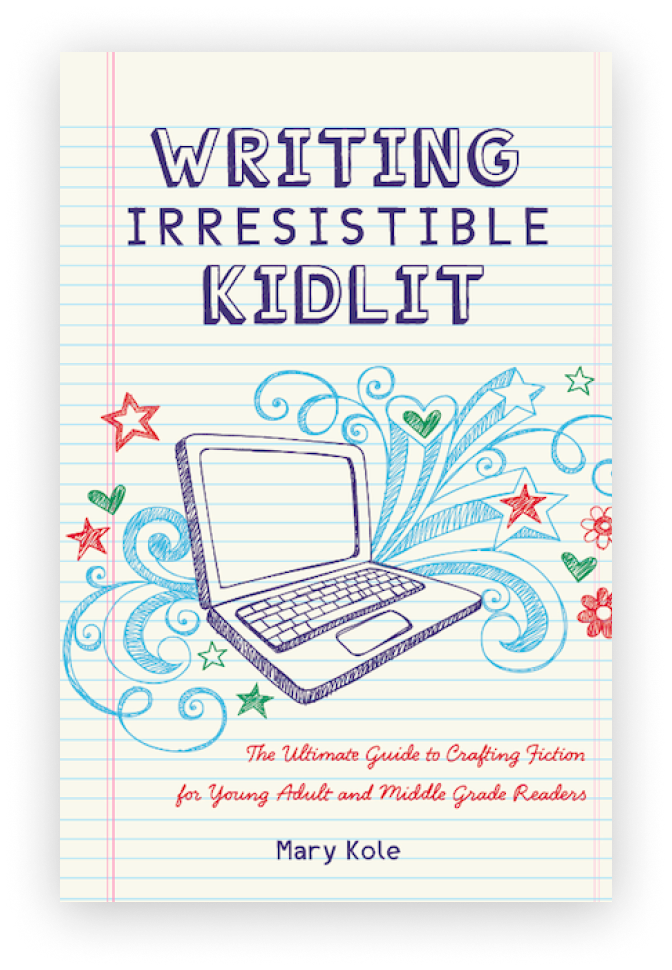The Benefits of Working with a Developmental Editor
By Mary Kole
Mary Kole is a former literary agent, freelance editor, writing teacher, author of Writing Irresistible Kidlit, and IP developer for major publishers, with over a decade in the publishing industry.
Writing a book is a monumental task that requires intense dedication, patience, and skill, and that’s even before a development editor offers feedback, and you have to jump into revision! As a writer, you would do well to get your manuscript edited before eventually trying for traditional publication or self-publishing. Your book is your baby, and you want to ensure that it's the best it can be before putting it out in the world, or into the slush pile, for evaluation by publishing gatekeepers. While proofreading and copyediting are essential stages in the process, the real magic happens when you work with a development editor.
Here, I’ll dive deeply into what working with a development editor can do for writers, including the benefits of running a manuscript by a development editor in your pursuit of publication or self-publishing. I’ll also touch on why writers need to be mature enough in their craft to revise according to rigorous constructive criticism and other writing feedback.
What is a Development Editor?
First, let's talk about what a development editor is and what they bring to the table in the collaborative process of taking a manuscript to the next level. They specialize in analyzing a manuscript and providing comprehensive feedback on pacing, plot, character development, world-building, and story structure. In short, they help the writer make the manuscript the best it can be. They work with writers during the early development stages of a manuscript to shape and mold your idea into a cohesive and polished final product.
One of the significant benefits of working with a development editor is the insight they offer the writer. As a writer, you are often too close to the manuscript to see its strengths and weaknesses objectively. A fresh-eyed third party offers a new perspective, discovering things you might have missed, or not been aware of. A good development editor also knows the market, and can steer you in more compelling directions, if a book deal is your goal.
Another benefit of working with a development editor is that they help writers build their writing skills. The development editor offers constructive criticism, insights, and gives you a strong sense of your specific strengths and opportunities for growth. Often writers are good at certain aspects of their craft, like imagery in writing, while lacking in others, such as characterization or structure. The development editor works with you to identify those areas and helps you improve, thereby leveling up your overall writing skills.
A Development Editor Is Not for Everyone
It's equally essential to note that not everyone is ready to work with a development editor, though, no matter how compelling this arrangement seems. Writers who have never worked with an editor before may feel overwhelmed and threatened by extensive feedback. It takes a certain level of craft and emotional maturity, as well as openness to feedback, to get the most out of working with a development editor. Therefore, if you're a new writer, I suggest you take the time to hone your skills before seeking this kind of exhaustive feedback. You can maybe start by joining a critique group or writing workshop first.
Lastly, I’d like to highlight the importance of doing revision on your manuscript after getting feedback from your development editor. The analysis and feedback provided by the development editor are essential to improving your manuscript. But it will be up to you, as the writer, to take that feedback and translate it into substantial changes to your project. It's crucial to be open to criticism and realize that it's part of the process. In fact, taking writing notes and learning how to revise, are indispensable parts of getting better as a writer.
Working with a development editor can do wonders for a writer and the manuscript at hand, but it requires a specific level of maturity and openness. The development editor’s objective perspective and constructive feedback can help elevate a writer’s project. But, it’s essential to revise after getting feedback, so that you take full advantage of the editor’s analysis.
Ultimately, your goal as a writer is to put out your best work, and a development editor can help you with that goal. If you’re a writer who needs help getting started, can’t seem to get over writer’s block, or need an impartial feedback system to pinpoint manuscript weaknesses and turn them into strengths, a development editor is a great resource.

Click here to purchase Writing Irresistible Kidlit, my book on fiction craft for MG and YA novels, out from Writer's Digest Books. This will show you my writing craft philosophy and give you lots of valuable advice, including tips for the novel revision process and self-editing. There are over 35 example novels cited and discussed throughout. It’s a valuable resource for any writer’s toolkit.
Click here to purchase Irresistible Query Letters, my book on query letters, including over forty examples with comprehensive notes on each one. There’s a ton of submission advice, best practices, and insider information in these pages, and you’ll really enjoy seeing what other writers are doing in the slush.




